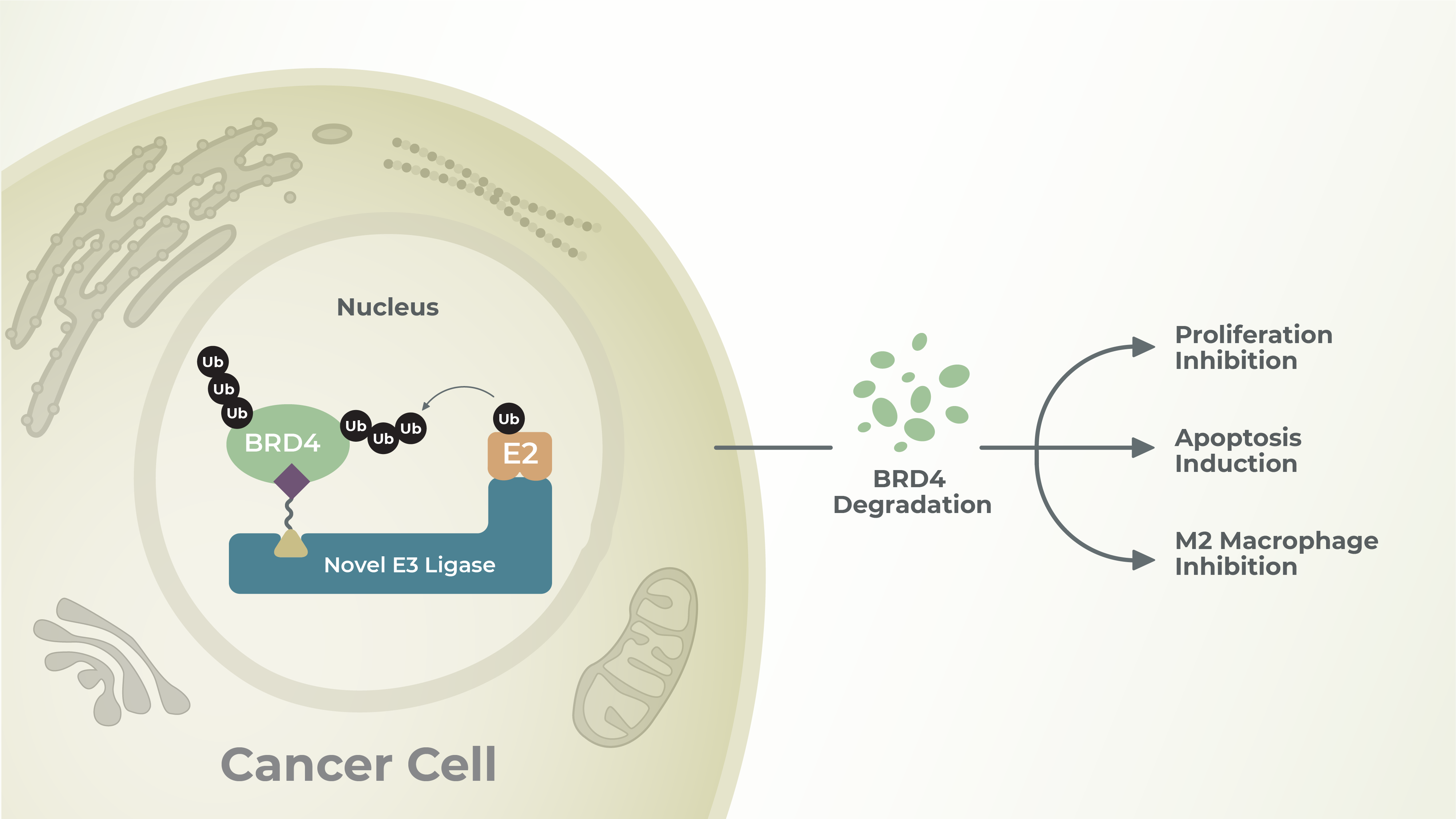Remarkable advances have been made in cancer targeted therapies with small molecule inhibitors and monoclonal antibodies. Drug resistance and off-target effects have limited their use making researchers seek more effective targeted therapies. With the development of proteolytic targeting chimeras (PROTACs), the utilization of protein degradation mechanisms as a therapeutic strategy to degrade oncogenic proteins is undergoing revolutionary advances. The first oral PROTACs (ARV-110 and ARV-471) showed encouraging results in clinical trials with prostate and breast cancer patients sparking greater enthusiasm for developing next generation of PROTACs. PROTACs are heterobifunctional structures consisting of ligands that bind the protein to be degraded and ligands to E3 ubiquitin ligases. PROTAC-mediated bridging between the protein of interest and E3 ligase promotes protein ubiquitination and its proteasomal degradation. There is a greater emphasis need on optimization of the ligases used in the design of PROTACs for specific tumor tissues to develop targeted therapeutics. LifeSensors suite of assays are designed to study PROTAC-mediated ubiquitination and degradation of oncogenes of interest, identify suitable ligases and provide mechanistic insights that help chemists rationally design potent PROTACs.
LifeSensors offers comprehensive solutions for all your needs related to PROTAC drug discovery.
Service Highlights
- Ligand Identification and PROTAC design
- Identify Ligases Specific for Tumor Tissues
- Screen Ligands for Novel Ligases
- Establish Target Degradation and PROTAC Selectivity
